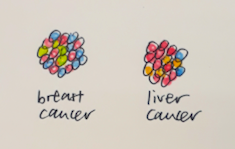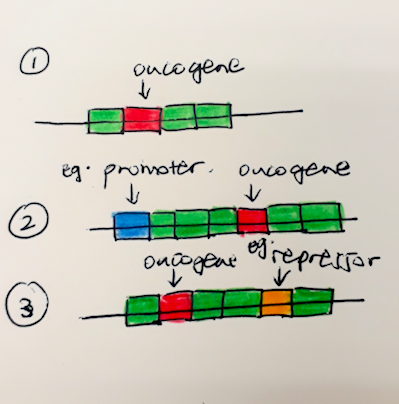Why there is no Cure for Cancer…Yet.
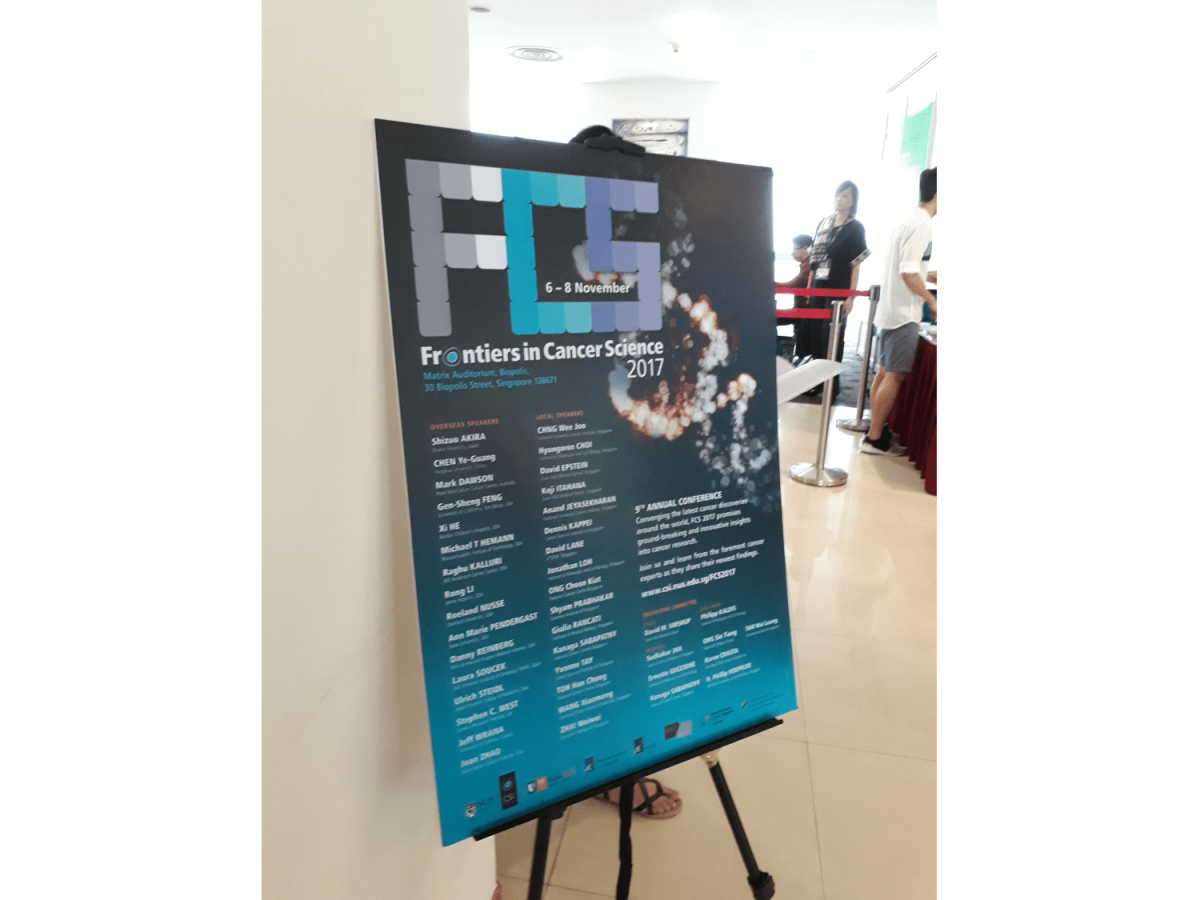
Most oncologists will tell you that one of the hardest things about their job is “telling someone they have cancer”. As a medical student, I had sat in during many of these difficult conversations, and it made me realise the monstrous power that the word “cancer” had over someone. In the next few minutes to months of hearing such news, people would be in shock and start reevaluating their lives. Siddhartha Mukherjee is a well-known oncologist, and very eloquently summarises the issues with cancer from a medical and philosophical point of view through his books and talks.
In this blog article however, I wish to share with you the topic of cancer from a scientific point of view. It is my desire to keep learning about and trying to understand this puzzling disease, and as such had attended Frontiers of Cancer Science 2017, held on 6-8 Nov at Biopolis Singapore. There were speakers from various countries sharing the different aspects of cancer that their research labs were studying.
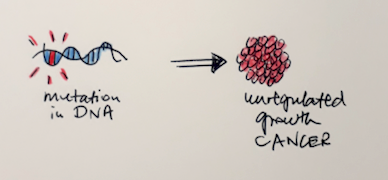
In brief, cancer is a result of accumulation of mutations leading to unregulated growth of cells. When detected by the doctor through diagnostic tests, these cells can either be localized, or have spread to other parts of your body. Understanding what makes these cancerous cells more likely to spread- and therefore the implications on treatment methods- is just one aspect of cancer research.
What makes cancer difficult to find a cure for, is also the fact that different types of cancers react differently. For example in liver cancer, a particular type of drug may help stop the cancerous gene from making proteins, while in breast cancer it can do the opposite! This is due to the different makeup of these cancers.
At a genetic level (i.e. right down to within individual cells), understanding how different genes interact with each other is very tricky. It is not just about the affected ‘cancer gene’ (oncogene) itself, but the genes in front (upsteam) and behind it (downsteam) as well. They can cause more/less/none of the oncogene protein to be produced depending on how they are positioned and interact.
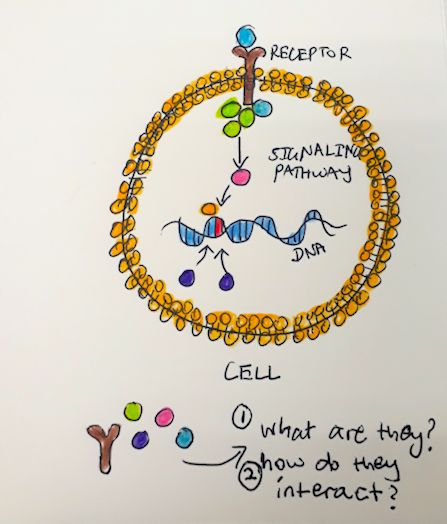 Learning how the genes interact, and the protein signals that affect them within a cell, form another large aspect of cancer research called cancer epigenetics. While I have simplified it for your understanding in this drawing, they are actually a few different pathways that researchers are trying to grasp of late- for example the JAK-3/EZH2 pathway or the P13K/mTOR pathway.
Learning how the genes interact, and the protein signals that affect them within a cell, form another large aspect of cancer research called cancer epigenetics. While I have simplified it for your understanding in this drawing, they are actually a few different pathways that researchers are trying to grasp of late- for example the JAK-3/EZH2 pathway or the P13K/mTOR pathway.
It is so complex that a single research unit, from one cancer institute, in one specific country, could spend years studying 1 gene/protein/pathway. As such, meetings -like this Frontiers of Cancer Science conference- are essential in providing a platform for sharing thoughts and ideas; and it’s only through such collaboration that we would some day find the cure for cancer.

